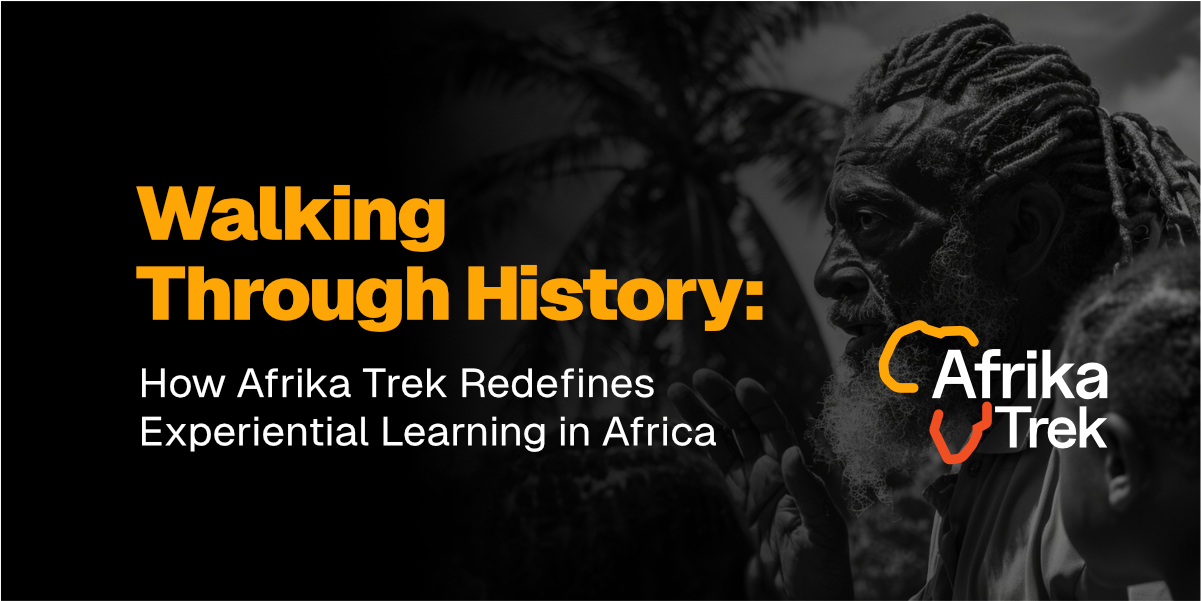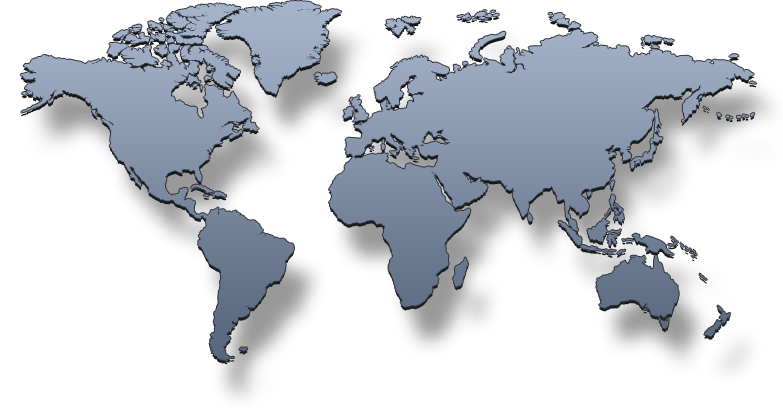
Africa is a continent rich with history, culture, and untapped stories waiting to be explored. Beyond the pages of textbooks and the confines of classrooms, lies an immersive opportunity to experience history firsthand. Afrika Trek offers just that, a transformative educational journey that combines adventure, learning, and cultural immersion to redefine experiential education.
In an era where hands-on learning is gaining prominence, Afrika Trek stands as a pioneering initiative, bridging the gap between traditional education and real-world experiences. Here, we delve into how Afrika Trek revolutionizes experiential learning by connecting participants with Africa’s vibrant history, culture, and heritage.
David Kolb, an educational theorist, aptly described experiential learning as a “continuous process grounded in experience.” This approach resonates particularly well with Afrika Trek’s philosophy of exploring history, culture, and heritage through personal encounters and interactions. Afrika Trek is not your typical travel program. It is a comprehensive educational experience that allows participants: students, corporate groups, and history enthusiasts, to explore significant historical and cultural sites across Africa. From the pyramids of Egypt to the bustling cultural hubs of Lagos and Cape Town, Afrika Trek curates immersive experiences that bring Africa’s history to life.
What Afrika Trek Offers
1. Immersive Historical Education
Afrika Trek takes participants to iconic sites that shaped the continent’s history. Imagine standing before the Great Zimbabwe ruins, walking through Robben Island’s prison corridors where Nelson Mandela was incarcerated, or visiting the Door of No Return in Senegal’s Gorée Island, a stark reminder of the transatlantic slave trade.
By experiencing these locations firsthand, participants gain a deeper understanding of Africa’s past, creating emotional and intellectual connections that no textbook can replicate.
2. Cultural Immersion
Participants don’t just visit sites, they engage with local communities, artisans, and storytellers. Afrika Trek emphasizes cultural exchange, allowing participants to experience African traditions, languages, cuisines, and art forms. For instance, a trek through Ghana includes workshops with Kente weavers, while a visit to Kenya offers the chance to learn about the Maasai way of life.
3. Bridging Classroom Learning with Reality
Afrika Trek complements formal education by offering real-world context to historical events. For students studying the Berlin Conference of 1884-85, a visit to key African sites that demonstrate the consequences of colonialism provides invaluable insights.
Why Afrika Trek Matters in Modern Education
1. Addressing Knowledge Gaps
Many African historical narratives remain underrepresented or misrepresented in mainstream education. A 2022 report by UNESCO revealed that only 30% of global school curricula adequately cover African history. Afrika Trek seeks to rectify this by presenting accurate, localized narratives.
2. Fostering Global Citizenship
Afrika Trek teaches participants to view history and culture through a global lens. By engaging with Africa’s rich heritage, participants develop empathy, cultural sensitivity, and a deeper appreciation for diversity, key traits for thriving in today’s interconnected world.
3. Inspiring Career Choices
For students, experiential learning often sparks interest in careers they hadn’t considered. A participant who experiences Africa’s rich biodiversity at the Okavango Delta may be inspired to pursue conservation biology, while one who learns about ancient architectural marvels may dream of becoming an archaeologist.
Practical Examples: Afrika Trek in Action
1. Exploring the Cradle of Humankind
Located in South Africa, this UNESCO World Heritage Site is one of the most important paleoanthropological sites in the world. Afrika Trek participants walk the caves where early human fossils were discovered, guided by leading archaeologists, offering a firsthand understanding of humanity’s origins.
2. Storytelling in Timbuktu
Afrika Trek includes visits to Mali, where participants explore the legendary city of Timbuktu. They interact with local historians who recount stories of the city’s golden age as a center of learning and trade, making history tangible and memorable.
3. Corporate Learning Through Heritage
For corporate groups, Afrika Trek offers tailored programs focusing on leadership, teamwork, and innovation inspired by African traditions. For instance, a trek through Ethiopia’s Lalibela churches highlights lessons in resilience and community-driven innovation.
The Economic and Social Impact of Afrika Trek
Empowering Local Communities
Afrika Trek prioritizes working with local guides, artisans, and businesses, ensuring that tourism revenue benefits host communities directly. According to the African Tourism Monitor, sustainable tourism initiatives like Afrika Trek can create up to 20% more local jobs compared to conventional tourism models.
Promoting Africa’s Image
By showcasing Africa’s historical and cultural richness, Afrika Trek helps reshape global perceptions of the continent. It emphasizes that Africa is not a monolith but a diverse collection of cultures, histories, and innovations.
Supporting UNESCO Goals
Afrika Trek aligns with UNESCO’s Education for Sustainable Development (ESD) goals, particularly in promoting cultural heritage education and sustainable tourism.
Testimonials: Voices from Afrika Trek
- “Walking through the slave dungeons of Cape Coast Castle in Ghana was life-changing. It wasn’t just history, it was an emotional journey that gave me a new perspective on resilience and humanity.” – Sarah Johnson, Student Participant.
- “The leadership lessons we learned from studying African heritage sites are still being applied in our company today. Afrika Trek is not just educational; it’s transformational.” – Ahmed Dangana, Corporate Participant.
The Future of Afrika Trek
Afrika Trek is set to expand its offerings to include virtual tours, allowing even more participants to experience Africa’s rich history remotely. With advancements in virtual reality (VR), participants can “walk” through the pyramids of Giza or the streets of Zanzibar from anywhere in the world.
Additionally, Afrika Trek plans to collaborate with more educational institutions to integrate its programs into school curricula, ensuring that future generations grow up with a deeper understanding of Africa’s heritage.
Afrika Trek is more than a travel service, it’s a movement. By combining history, culture, and hands-on learning, it redefines how we engage with Africa’s past and present. Whether you’re a student looking to supplement your education, a professional seeking inspiration, or an adventurer eager to explore, Afrika Trek promises an unforgettable journey that educates, enlightens, and empowers.
As Nelson Mandela once said, “Education is the most powerful weapon which you can use to change the world.” Afrika Trek wields this weapon uniquely, using Africa’s rich tapestry of stories, places, and people to inspire and educate a global audience.



